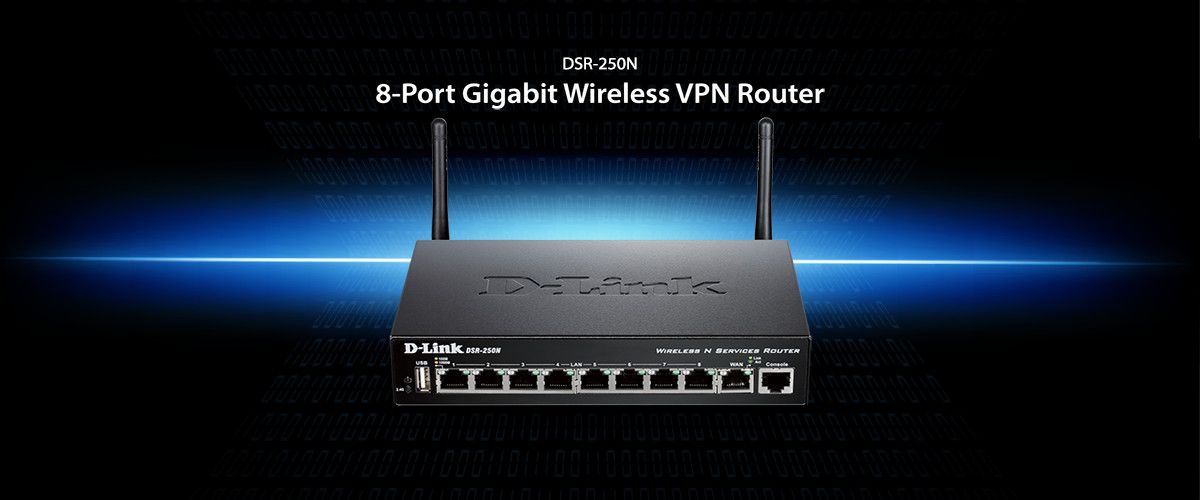I mean, some of those EOLed nearly a decade ago.
You can argue over what a reasonable EOL is, but all hardware is going to EOL at some point, and at that point, it isn’t going to keep getting updates.
Throw enough money at a vendor, and I’m sure that you can get extended support contracts that will keep it going for however long people are willing to keep chucking money at a vendor – some businesses pay for support on truly ancient hardware – but this is a consumer broadband router. It’s unlikely to make a lot of sense to do so on this – the hardware isn’t worth much, nor is it going to be terribly expensive to replace, and especially if you’re using the wireless functionality, you probably want support for newer WiFi standards anyway that updated hardware will bring.
I do think that there’s maybe a good argument that EOLing hardware should be handled in a better way. Like, maybe hardware should ship with an EOL sticker, so that someone can glance at hardware and see if it’s “expired”. Or maybe network hardware should have some sort of way of reporting EOL in response to a network query, so that someone can audit a network for EOLed hardware.
But EOLing hardware is gonna happen.
all hardware is going to EOL at some point, and at that point, it isn’t going to keep getting updates
EOLing hardware should be handled in a better way
Both of these are solved by one thing: open platforms. If I can flash OpenWRT on to an older router then it becomes useful again.
Bingo.
Either support the device until the heat death of the universe, or provide consumers with the access to maintain it themselves.
But neither of those help corporations make them all the money. So we need regulation to force them to.
Regulation? I think you mean “guillotines”…
Regulation guillotines maybe?
Definitely don’t this in the past (Linksys WRT54G!) but let’s be honest, the kind of people running 10yo Dlink routers aren’t going to flash new firmware, let alone OpenWRT or even know to look for it. It would have to come that way from the factory. And even then I doubt most people even do regular updates, sadly.
Counter point: so it should automatically update every night when updates are available, and should have or migrate to an open standard at mfg EoL or from the factory.
It’s still the mfg fault, full stop.
EoL of anything should mean open source code. You don’t want to open source your code? Then you must keep servicing your products and must keep your servers up
EU is cooking something with EU Directive on Liability for Defective Products. I’ve read only part of it, but basically companies are liable for bugs in software unless they opensource it.
When the users are in control of the software running on their devices then “EOL” is dependent the user community’s willingness to work on it themselves.
I can still use a 2003 AMD Opteron with the newest builds of Linux. It’s an open standard. As long as the hardware still physically works. The only reason these pieces of hardware are EOL is because they chose to lock them down.
The ones with EOL 2015, fair play. But May 2024 isn’t all that long ago.
Edit: Looks like those were launched in early 2015. I guess requesting users to update devices after 8+ years might not be too far fetched.
When we’re they last sold though, eol 8 years after last up for sale is fine, but if they were still on sale up to last month that is a different issue.
This is the correct reaction to old home equipment.
Right?
Something this old is going to be power inefficient compared to newer stuff, and simply not perform as well.
I would know, I just booted up a 10 year old consumer router last night, because the current one died. It’ll be OK for a few days until I can get a replacement. Boy, is this thing slow.
The DSR-150 is still being sold on Amazon under the D-Link store. Why the hell would you end of life something you still sell.
Don’t want to get lumbered with a bunch of old stock now, do you?
Technically most if not all Amazon sellers are third party who sell to the warehouse and then it sits there until its listing contract expires.
Thats why Rode Microphone refuses to sell on Amazon.
Then recall all the end of life stock.
They have a page on there though
Maybe they’ve changed stances since they acquired Mackie in the merger last year. They used to have a statement on their website about finding authorized distributors like PSSL.
Okay so the 2015 EOL ones, yeah I can understand telling the customer to update their shit. They shouldn’t have to support nearly 10 year out of date stuff.
May 2024 EOL ones? Bruh. C’mon now.
I would love to know when they stopped selling it compared to the EOL. EOL should be at least 5 years past the last time the models were shipped out, maybe more. So if May 2024 was EOL I sure hope they weren’t selling them after 2018.
Hopefully there’s a mistake in the article.
- It does claim they were both discontinued this year and reached end of support this year. If that’s true, that’s huge and there should be consequences in the market.
- if the article is poorly written and the only concern is they already passed end of support so are no longer being supported , that seems like a tautology.
Welp never buying anything D-Link ever again
I had a couple of dlink gigabit desktop switches. Two failed so far, one has taken down the whole network, not just devices directly connected to it, and the other one fried 2 router ports when it died. I learned my lessons about buying crappy network hardware.
Edit: that happened within a few months, so these switches also have a very clear EOL.
Long ago, D-Link was good but then they sold the company. Just like Alienware, Farbreware, Oaklies, etc.
Oakley, like the sunglasses company? What happened to them?
Luxottica. I’ve visited their HQ in soCal, people aren’t having fun and coming up with wacky designs anymore.
I mean this is pretty standard in all industries regardless of whether it’s a software flaw or a physical flaw in any other kind of product. What’s the likelihood of a vacuum manufacturer replacing a part in a 15 year old product that had a 1 year warrantee even if it’s a safety issue? Sure the delivery and installation is cheaper with software, but the engineering and development isn’t, especially if the environment for building it has to be recreated.
What you’re saying is perfectly reasonable, but also doesn’t apply here because they’re still selling this router new on the D-link Amazon store.
If you’re going to stop supporting a product, you should also stop selling it.
As far as I can tell, those aren’t from authorized resellers or even from Amazon itself which they might have some ability to stop selling them. These are just people who are using amazon marketplace to sell off old stock like any other product. D-link hasn’t sold them for a while. But I could be wrong, I just haven’t seen any evidence that they are selling them. If Bissel had a vacuum that had a faulty gear that would break after a few years of use and they stopped making them, that wouldn’t stop someone from buying them up from Walmart or other store warehouses that no longer sold them and listing them for sale on Amazon or Walmart or whatever marketplace. That’s very common.
Some of them are still listed on the official D-link store on Amazon.
This is a misunderstanding of how Amazon works. There’s a difference from them showing up as products on their “store” and them actually selling them.
Anything that was a product of that company will show if you go to their store and search for it. But if you look at the options for actually buying them you’ll see that they are being sold by third parties.
For example, if you go to this link https://a.co/d/eFXaSFJ for the DSR-150 you’ll see that there are only 3 sellers. The new is shipped and sold by HOLLITRONIC and the others are used and shipped and sold by other sellers. None of the products on the list, as far as I could find, were being sold by D-link or Amazon itself. D-link has no control over the Amazon marketplace and honesty Amazon doesn’t do much to control it even.
This is why a number of countries have laws saying spare parts must be made available for a number of years past being sold. Well beyond what the warranty is.
How is this significantly different?
Someone can generally make 3rd party fixes for hardware flaws of discontinued products without the same kinds of threats software gets. Like replacement antennas or vaccuum bags.
Compiled software can’t be legally decompiled for use in distributing software fixes.
That’s not necessarily true. That’s a copyright issue. Now if d-link was to say that the product was not abandoned and thus the copyright is still theirs, then you might have a case that they need to fix the issue. That doesn’t mean they need to give you the code, but decompiling should be OK. But copyright laws vary quite a bit. So that’s a totally separate issue.
But you are welcome to write your own firmware and install it on the device in most localities. You just need write it from scratch, just like replacing a custom gear or motor in a vacuum would require engineering it to fit inside the case and connect with all the appropriate parts. Which you are welcome to do.
I work for a manufacturer with part catalogues going back to 1921, and while the telegraph codes no longer work, you could absolutely still order up a given part, or request from us the engineering diagram for it to aid in fabricating a replacement. You can also request service manuals, wiring diagrams, etc. Don’t all half-decent manufacturers do this?
Don’t all half-decent manufacturers do this?
No. That is phenomenally uncommon. To the point it’s almost unheard of.
Our shit sucks. Buy more lol
Can highly recommend ASUS, most of their models can be flashed with custom firmware that is supported beyond EOL. And their EOL cycle is also pretty long.
Or just get a GLi.Net router, and get the OpenWRT firmware right out of the box without even needing to flash it manually.
As a bonus, if you ever have the need for one, they also have some badass travel routers that can use your phone as a modem, take a SIM card natively, or just connect to an Ethernet/public WiFi to create your own secure network. Super handy if you do a lot of traveling, because they can be used in hotels or cruise ships. Know how cruise ships sell internet access per device? Yeah, your travel router only counts as one device. Set that bad boy up, and now all of your devices have internet.
It’s way cheaper to just set up your own device with openwrt, not that difficult, and with the added benefit of having open source code. Why half-ass it.
but does it run openwrt?
e: no it doesn’t, only one model had half-baked image made and available for download from some sketchy forum post made in 2014
Cool, so what brand is a good one to replace D-Link with?
Tplink is widely supported by openwrt
I have a fourth generation I7 with 8gb of ram running pfsense. Its free and you can’t beat it for baked in capabilities. I run pfblocker ng and snort to block ads maleware and useless(to me) telemety that my non linux machines send in regularly. Microsoft, Amazon and others. I also have wiregurad for vpn access to my home. You can also install the ntopng package and get really good realtime information on what is going on on your network. For years I used open wrt but the two don’t really compare. If you had to compare, openwrt is like a geo metro and pfsense is like a sports car.
Mikrotik and Ubiquity
Why do they say they’re prohibited to provide support? That a bad translation?
No mercy from Low Level.
I watched and enjoyed that one yesterday, and he’s bang on the money. People here are saying “well it’s EoL” but that means it’s got all the way through development and its full lifetime with such a prominent set of bugs.
I don’t think I’ll be buying D-Link if that’s what supported means.
A bunch of juvenile D-Linkuents. Get it? D-Link? Nevermind…
Commodity hardware & open source software for the win.
When my Western Digital NAS was never going to get critical security patches, I was so freaking glad to find out that they just used software raid… I threw the HDDs in a Debian server and never looked back.
It’s certainly nice to have things that are turn-key, but if you can find your way around any OS, just avoid proprietary everything.
Is DDWRT still a thing?






















